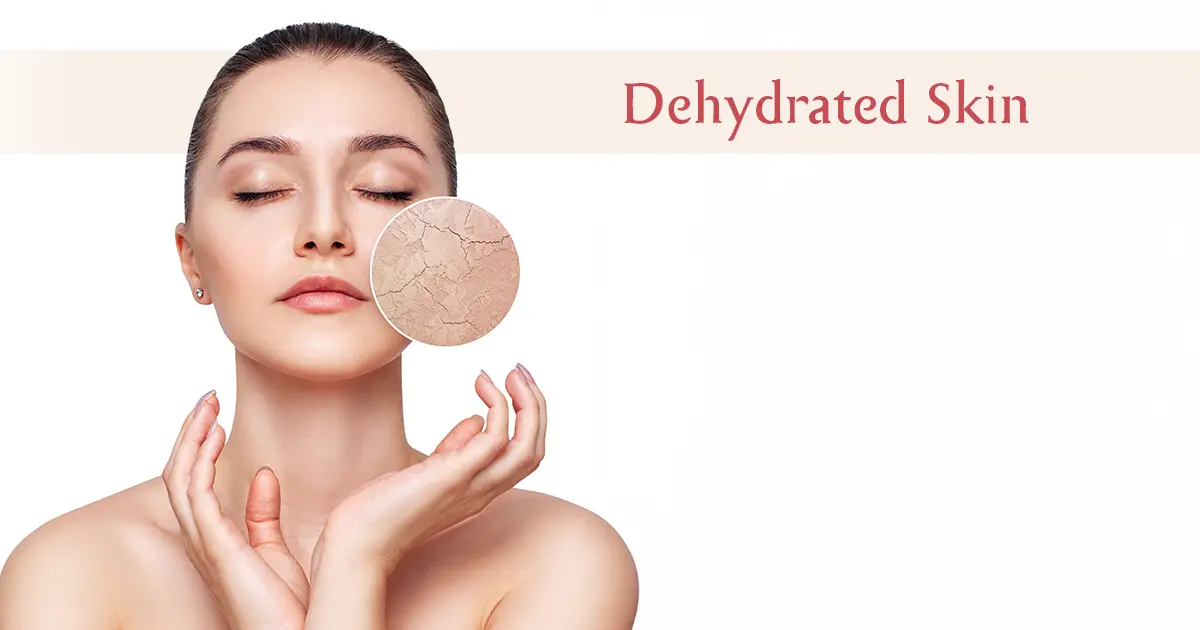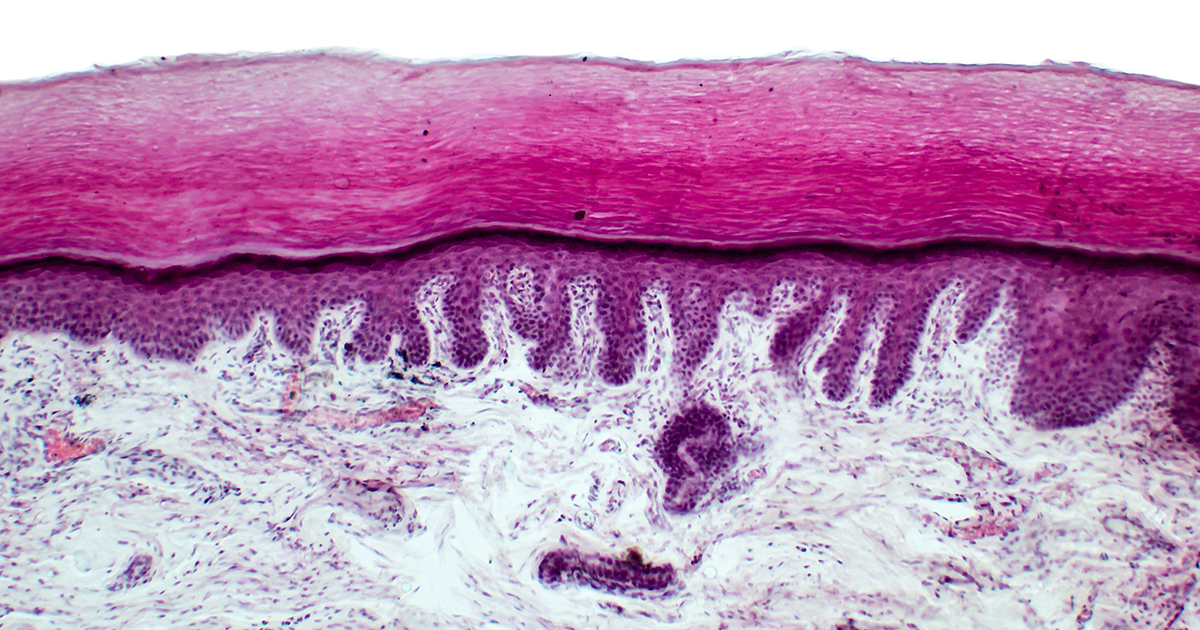
One of the most common skin concerns people face is dry, dehydrated skin. It can affect anyone and is often triggered by various environmental, lifestyle, or skincare-related factors. You might wonder — is dehydrated skin the same as dry skin? While they may seem similar, they are scientifically different.
In this blog, we will explore what dehydrated skin really is, how it differs from dry skin, and most importantly, how to identify and manage it effectively.
Understanding Skin Barrier
Skin is more than just a protective outer layer—it’s a complex system made up of several layers and structures that work together to keep your body safe and healthy. This system, known as the integumentary system, includes the epidermis, dermis, hypodermis, glands, hair, and nails.
At the very surface, the epidermis serves as your body's first line of defense. It acts like a shield, protecting you from the outside world. Its main job is to:1
- Prevent excess water loss
- Limit the absorption of harmful substances
- Block the entry of pathogens
How The Skin Barrier Works
The outer layers of the skin are formed through a process called keratinization, where skin cells called keratinocytes grow and mature through several stages. This leads to the creation of four distinct layers:
- Stratum basale (deepest layer)
- Stratum spinosum
- Stratum granulosum
- Stratum corneum (SC) – the outermost layer
Among these, the stratum corneum is especially important. It helps maintain the skin’s barrier by preventing the loss of water, ions, and proteins from the body. 1

What Is Dehydrated Skin?
Dehydrated skin happens when the outermost layer of the skin, the stratum corneum, doesn’t have enough water. This moisture loss can be measured through indicators like transepidermal water loss (TEWL) and levels of natural moisturising factors (NMF). 1
Dehydrated vs. Dry Skin
Dry skin and dehydrated skin are not the same, as dry skin refers to the skin type that generally lacks lipids in the skin, but dehydrated skin refers to the skin condition that lacks water and moisture in the skin.
It's important to remember that skin with more lipids, that is oily skin, also can lead to dehydration. 1
What Causes Dehydrated Skin?
UVB exposure:
When the skin is overexposed to UVB radiation, it damages the skin barrier, particularly the stratum corneum. This disruption leads to an increase in transepidermal water loss (TEWL), resulting in dryness, irritation, and reduced skin hydration. 1
Cold weather:
Seasonal changes, especially cold climates during winter, reduce the lipid content of the stratum corneum. This weakens the skin’s moisture-retaining ability, causing increased water loss and making the skin more prone to dryness. 1
Vitamin C deficiency:
Vitamin C stimulates ceramide production, which helps lock in moisture within the skin. A deficiency in Vitamin C can therefore lead to reduced ceramide levels and increased water loss. 1
Ageing:
As we age, the skin’s ability to retain moisture declines, leading to compromised water retention and skin dehydration. Another key molecule, hyaluronic acid, decreases with age. Hyaluronic acid plays a crucial role in holding moisture within the skin; as its levels drop, the skin loses its ability to retain moisture, contributing to dehydration. 1
Lifestyle:
Fat-free diets may do more harm than good when it comes to skin health. Essential Fatty Acids (EFAs), like omega-3 and omega-6, are crucial for maintaining the skin’s moisture barrier and overall integrity. When your diet lacks these healthy fats—often due to strict fat-free trends, it can lead to symptoms like chronic itching, dryness, flakiness, and thinning of the skin.
Excessive alcohol consumption and certain medications, such as nasal decongestants, can also contribute to dry or dehydrated skin.1
How to Manage Dehydrated Skin Effectively?
Use Hydration-Based Moisturizers:
Hydration-based moisturisers, particularly those in the Optimal Hydration (OH) range, have been reported by healthcare professionals (HCPs) and patients to be effective and well-tolerated. These moisturisers are lightweight and integrate seamlessly into various skincare routines. They help replenish moisture and support the skin's barrier function. 2
Incorporate Humectants:
Ingredients like hyaluronic acid and glycerin that attract water to the skin, enhance hydration levels. Products containing these humectants can be beneficial in managing dehydrated skin. 2
Gentle Cleansing:
Opt for mild, fragrance-free cleansers that do not strip the skin of its natural oils. Avoid harsh soaps and hot water, which can exacerbate dehydration. 2
Regular Moisturisation:
Apply moisturisers immediately after bathing to lock in moisture. Consistency is key; regular application helps maintain skin hydration. 2
Adequate Water Intake:
Ensuring sufficient daily water consumption is fundamental. Higher water intake has been associated with improved skin hydration and function. 2
Balanced Diet:
Incorporate water-rich foods and essential fatty acids into your diet. These nutrients support skin health and hydration. 2
Environmental Considerations:
Use a humidifier in dry environments to maintain ambient moisture levels in your skin. Protect your skin from extreme weather conditions by covering exposed areas and using appropriate skincare products. 2
Final Thoughts
Dehydrated skin is more than just a surface issue—it reflects an imbalance in the skin’s water content and overall barrier function. Unlike dry skin, which is a skin type lacking oils, dehydrated skin is a temporary condition caused by a lack of moisture, and can affect anyone—even those with oily or combination skin.
From UV damage and harsh weather to poor diet, ageing, and inappropriate skincare habits, the causes of dehydration are varied but manageable. The good news? With the right approach, dehydrated skin is both preventable and treatable.
By understanding the structure of the skin barrier, recognising early symptoms like tightness or dullness, and embracing hydration-friendly habits—such as using humectant-rich moisturisers, drinking enough water, and eating skin-supportive nutrients—you can help your skin bounce back to a plump, radiant, and balanced state.
Hydration is the foundation of healthy skin. Nurture it, and your skin will thank you with a natural, lasting glow.











